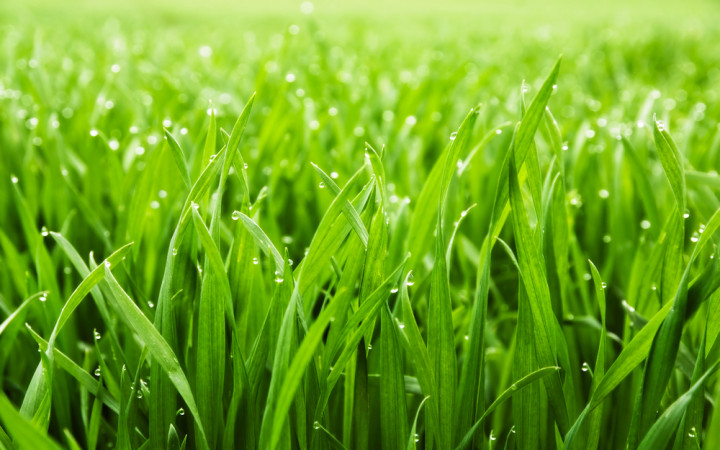“Did it rain last night?" Have you ever asked that question after waking up to see a wet lawn in the early morning? Maybe it did rain last night, but then again…maybe it didn't!
Rain or shine, there's always a chance of waking up to a wet lawn if the weather conditions are just right. Those tiny droplets you see clinging to the blades of grass are called "dew."
Dew is liquid water droplets that form on grass, spider webs, and other things in the early morning or late evening. Dew only forms under certain conditions.
If a warm, clear day is followed by a cool, clear evening, dew will likely form. On a normal warm day, water evaporates from the warm ground into the air. That means it turns from a liquid into a gas called "water vapor."
When evening comes, the warm ground continues to radiate heat into the air. As the ground begins to cool, the air will not be able to hold all the moisture.
At a certain point — a temperature called the "dew point" — water vapor in the air will begin to condense (turn back to liquid water) faster than water is evaporating.
When this happens, dew forms on surfaces that aren't warmed by the heat radiated from the ground. That's why you mainly see dew on things like grass, leaves, and even car roofs.
If the temperature gets low enough in the evening, dew may undergo yet another transformation. When temperatures are low enough, dew may freeze to a solid form that we then call "frost."
If you're wondering why it's important that the evening is clear for dew formation, it's because cloudy nights hold heat closer to the ground. If the evening is cloudy, the clouds reflect heat back to the ground. When this happens, the ground doesn't cool off enough for dew to form.
If you pay attention, you may notice that on mornings when you find dew on the grass, there's probably not much, if any, dew on the soil of flower beds. Like clouds on a cloudy evening, the plants in a flower bed keep the ground warm enough to prevent dew.
In some areas, certain species of plants depend on dew. For example, in areas that have lengthy dry seasons, such as deserts, plants like lichen and pine seedlings depend on dew to survive.




